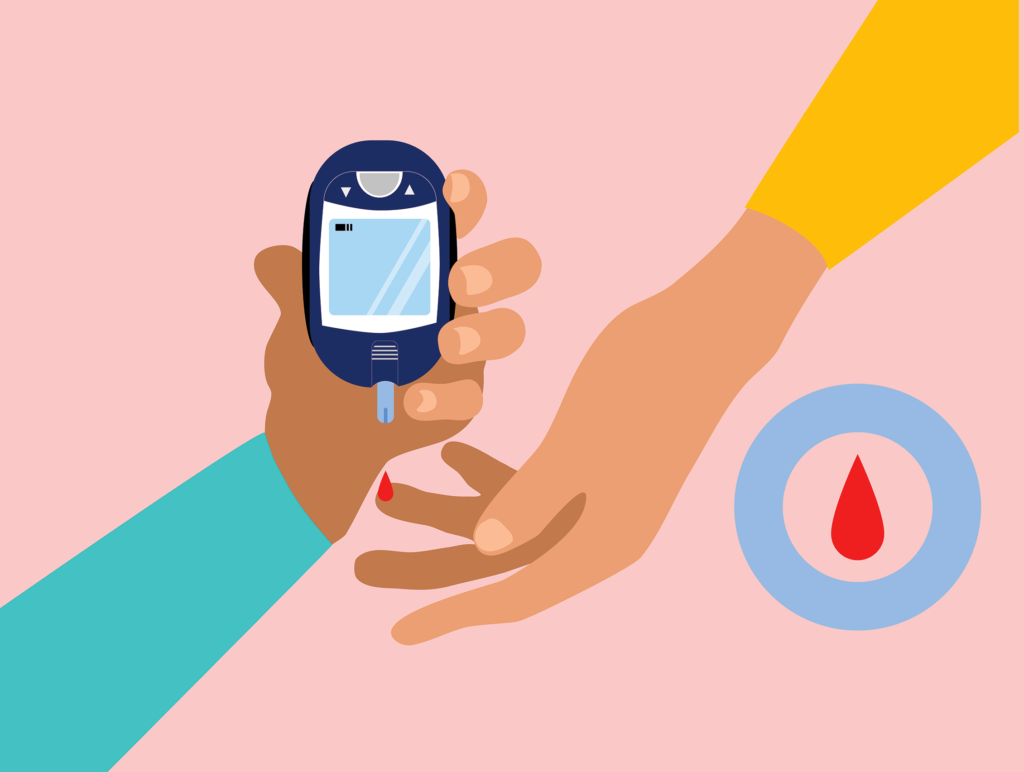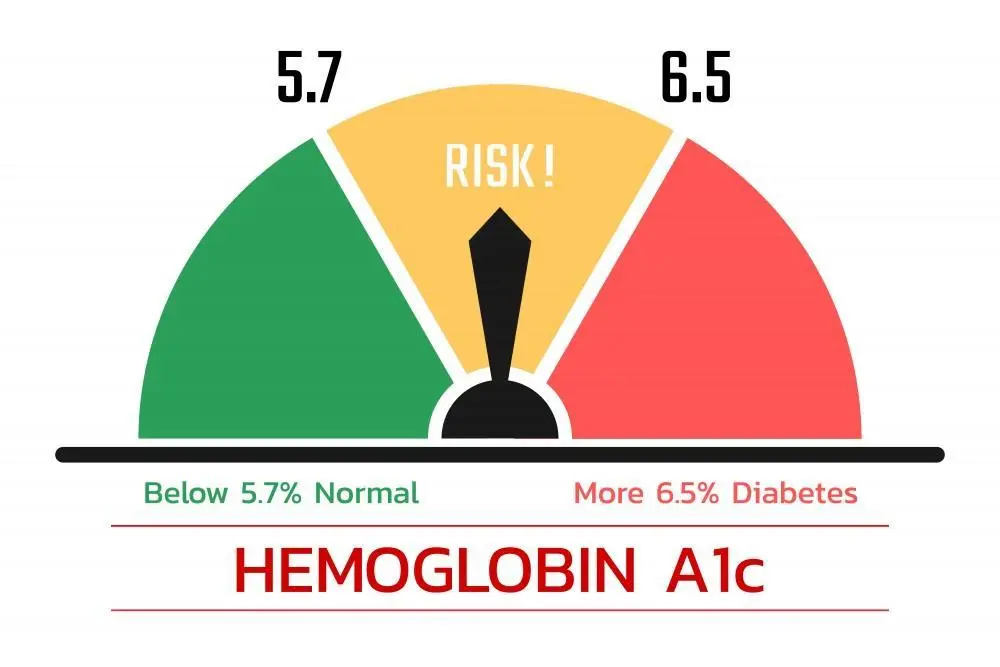
Understand what increases your chances of developing nerve pain from diabetes—and how to prevent it.
Living with diabetes already requires constant attention to your health. But for many people, the real trouble starts when painful diabetic neuropathy sets in. This condition causes burning, tingling, or shooting pain, most often in the feet and legs. It can disrupt your sleep, mobility, and overall quality of life.
So, what causes painful diabetic neuropathy? Poor blood sugar control, smoking, and long-standing diabetes all play a role. Today, we’ll break down the painful diabetic neuropathy risk factors you need to know—and what you can do to lower your risk.
What Is Painful Diabetic Neuropathy?
Before diving into the risk factors, it helps to understand what this condition is.
Painful diabetic neuropathy (PDN) is a type of diabetic peripheral neuropathy (DPN) that causes chronic nerve pain. It results from long-term high blood sugar levels damaging the small nerves, especially in the extremities.
Common symptoms include:
- Burning, tingling, or stabbing pain in the feet or hands
- Numbness or loss of sensation
- Muscle weakness or imbalance
- Sensitivity to touch
Some people with diabetic neuropathy have numbness with no pain. But if your damaged nerves are still firing abnormally, they can send pain signals even when there’s no injury.
Key Risk Factors for Painful Diabetic Neuropathy
Understanding the painful diabetic neuropathy risk factors can help you take steps to prevent this complication. The most important risk factors include:

Poor Blood Sugar Control
Chronic high blood sugar is the number one risk factor for developing painful diabetic neuropathy. When blood sugar remains elevated over long periods, it injures the small blood vessels that nourish your peripheral nerves. These vessels become narrowed or blocked, starving the nerves of essential oxygen and nutrients. As the nerve fibers weaken or die, they may misfire, leading to pain, tingling, or burning sensations—especially in the feet and legs. The longer your blood sugar stays uncontrolled, the more severe the nerve damage can become.
- Higher A1C levels reflect long-term uncontrolled blood sugar and increase your risk of nerve damage.
- Consistent glucose spikes increase oxidative stress and inflammation, which rapidly accelerate nerve injury.
Prevention Tip: Keep your A1C below 7% if possible. Use a continuous glucose monitor (CGM) for tight control.

Long Duration of Diabetes
The longer you’ve had diabetes, the greater your risk of developing painful diabetic neuropathy.
- After about 10 years, the risk of developing nerve pain rises dramatically due to cumulative nerve damage.
- After 15+ years, the damage can become more permanent and painful if glucose control has been poor.
Prevention Tip: If you’ve had diabetes for several years, regular nerve checks are essential.
Smoking
Smoking reduces blood flow, which worsens nerve damage and speeds up the progression of DPN.
- Nicotine constricts blood vessels, limiting oxygen and nutrient delivery to nerves and increasing pain sensitivity.
- Toxins in cigarettes damage nerve cells and increase inflammation throughout the body.
Prevention Tip: Quitting smoking is one of the best things you can do for nerve health.
High Blood Pressure and Cholesterol
High blood pressure and elevated cholesterol damage blood vessels that supply nerves.
- Increases inflammation through chemical signals that irritate nerves
- Decreases circulation to nerves, increasing the risk of degeneration and pain
Prevention Tip: Aim for a blood pressure below 130/80 and LDL cholesterol under 100 mg/dL.
Obesity
Excess weight promotes insulin resistance and inflammation, both of which damage nerves.
- Insulin resistance makes it harder to control blood sugar, increasing nerve stress.
- Fat cells release pro-inflammatory chemicals that worsen nerve pain.
Prevention Tip: Losing even 5–10% of your body weight can have a powerful impact on your nerve health and diabetes control.
Kidney Disease
Diabetic kidney disease leads to toxin buildup in the blood, which harms nerves.
- Toxins accumulate in the bloodstream, directly irritating and damaging nerve tissue
- Kidney dysfunction limits your ability to remove these nerve-damaging substances
Prevention Tip: Monitor your kidney function yearly and follow a kidney-protective diet if needed.
Alcohol Use
Heavy alcohol use worsens blood sugar control and directly damages nerves.
- May lead to alcoholic neuropathy, which overlaps with and worsens diabetic nerve symptoms
- Increases nerve sensitivity and lowers pain threshold
Prevention Tip: Limit or avoid alcohol to protect your nerves and improve glucose control.
Vitamin Deficiencies
Vitamin B12 deficiency, especially in people taking metformin, can mimic or worsen diabetic neuropathy.
- B12 is vital for nerve repair and maintaining the myelin sheath that protects nerve fibers
- Deficiency causes symptoms like numbness, tingling, and burning that can be mistaken for diabetic neuropathy
Prevention Tip: Ask your doctor to check your B12 level if you take metformin.
Are Some People More Prone to Pain?
Yes. Some people experience numbness, while others develop painful symptoms. Why? It may come down to:
- Genetics
- Mental health factors like depression and anxiety
- Chronic stress that amplifies pain signals and increases inflammation
Can Painful Diabetic Neuropathy Be Prevented?
Absolutely. You can reduce your risk by:
- Keeping blood sugar under control
- Exercising regularly
- Avoiding tobacco and limiting alcohol
- Maintaining a healthy weight
- Taking all medications as directed
- Checking your feet daily for early signs of nerve changes
What If You Already Have Painful Diabetic Neuropathy?
If you’re already dealing with pain, there is hope. At Red Butte Pain Solutions, we offer treatments that can help:
- Medications like duloxetine, pregabalin, and gabapentin
- Infusion therapies such as lidocaine or ketamine
- High frequency spinal cord stimulation (HFX) for long-lasting relief
Final Thoughts
Knowing your painful diabetic neuropathy risk factors empowers you to take action. Small steps—like managing your blood sugar and avoiding smoking—can make a huge difference.
And if pain is already interfering with your life, we’re here to help you get back on track.
Get Relief Today
At Red Butte Pain Solutions, we specialize in treating painful diabetic neuropathy. One of our patients, a retired teacher, came to us with severe burning pain in her feet. After starting high frequency spinal cord stimulation, she was able to walk comfortably again and enjoy gardening—a hobby she had given up due to the pain.
📞 Call us at 602-633-4334
🗓 Schedule now and take your first step toward lasting relief.
